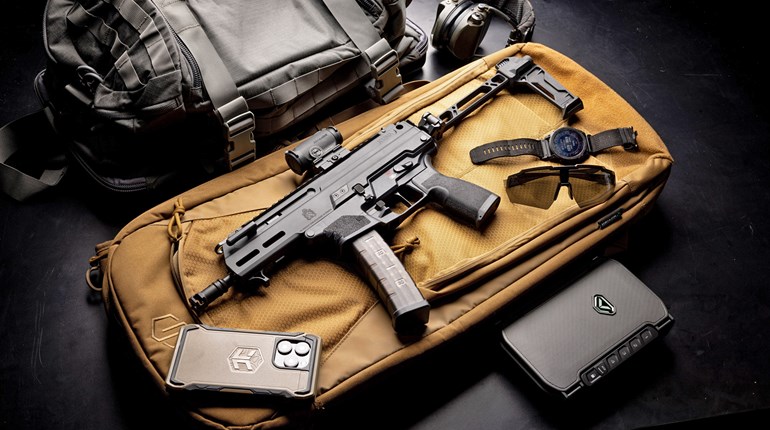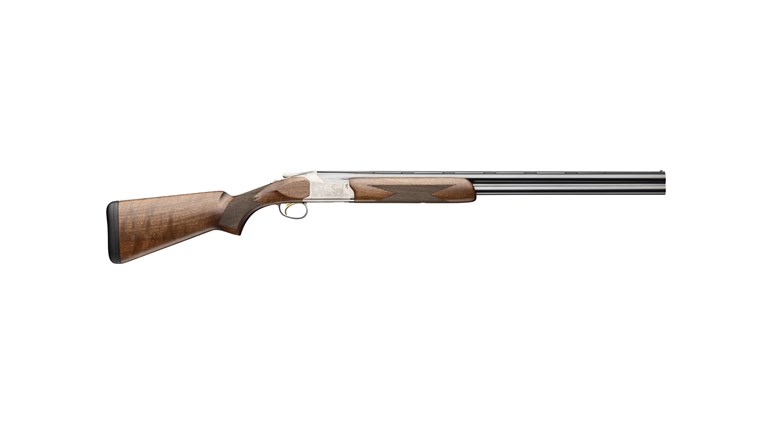
No matter the type of handgun you choose for personal protection, minor (or even major) customization can make it better suited for your needs. But, any such modifications should be based on what works, not merely what looks good.
Back in the 1800s, the old timers’ idea of custom guns seemed to have centered around having them engraved, silver-plated and mounted with fancy, carved stocks. I suppose there is nothing wrong with that. Some had it done because they simply took pride in good equipment, while others were reminded that the old sixgun had saved their lives. Today, the defensive shooter is more focused on having work done that will make the handgun more user-friendly.
When I first became a peace officer, the double-action revolver was king of the heap. A rookie would buy a new Smith & Wesson or Colt (double-action Rugers weren’t out yet) and start shooting with the big dogs. We quickly found that, in order to be competitive, those new guns needed some work done.
We started by having a good pistolsmith polish all of the moving parts in the action. In my case, I found that a smooth, narrow trigger was best for quick double-action work. At the same time, I realized that the Smith & Wesson target stocks were just a bit too big for my hand. So, while my Model 19 was in the shop, I spent my time sanding down and trimming down those stocks. A bit of work and experimenting gave me a revolver that really fit my hand, and the results of those modifications were reflected in improved shooting scores.
When the 1911 and other semi-automatic pistols came into vogue, we found the same thing to be true. Polishing the trigger and sear improved the trigger pull. Individual hand fit could be accomplished by using thicker or thinner stocks, a long or a short trigger and an arched or a straight mainspring housing. Back in those days, we also found that most semi-autos had rather poor factory-installed sights. The addition of high-visibility sights was quite beneficial. Above all else, the defensive handgun needs good sights and a good trigger.
While, today, the situation with pistol sights has improved greatly, there is often still room for improvement. Some companies ship their guns with plastic sights or cheap metal, and often the best place for these is in the trash can.
The same goes for those three-dot sights some companies persist in putting on their guns. There is absolutely no need for those rear dots, in my opinion. What the defensive shooter does need is something on the front sight that attracts his or her attention. I like a gold post in the rear face of the sight. However, a white dot, or anything else that attracts the shooter’s attention, will work just as well. We need to be focused on that front sight when we break the shot in a defensive situation.
As far as triggers go, the guns still need to go to a good pistolsmith for polishing. The defensive shooter does not need a hair trigger, but they do need one that breaks cleanly, without any creep or drag. Several companies are now offering drop-in connectors or trigger assemblies that will improve a handgun’s performance.
There are now a number of pistolsmiths who can stipple, modify or reshape the grip frame on polymer pistols. Just like changing stocks on the revolver and other semi-autos, modification of the polymer grip frame will allow the gun to fit the individual shooter’s hand, and the result will be a gun that fits and balances better for quick, accurate work.
I saw a post on social media recently in which the individual stated he had just bought a certain handgun and asked what modifications he should make to it. This is probably the biggest mistake a new gun owner can make. It’s like asking whether you should buy a Ford or a Chevy—that’s an answer you have to decide for yourself. And the only logical answer is found by shooting the gun a lot and then determining what modifications need to be made to aid your individual performance. We don’t make custom changes on a defense gun to look cool; we make them to improve our shooting.
What the defensive shooter does need is something on the front sight that attracts his or her attention.
Another mistake that a defensive shooter might make is to bypass the safety features of a particular handgun. This not only negates the manufacturer’s warranty, but can also create liability issues for the user in case of a negligent discharge, which it potentially makes more likely. It’s just a bad idea.
There are some who argue that having custom work done on a defensive handgun can cause problems for the user in a court of law. I would really like to see some case history on this issue. I believe a good attorney could argue that reasonable custom work on a defensive handgun makes it more reliable for the armed citizen. Regardless, don’t take my word for it; instead, talk to a qualified criminal-defense attorney and make your own decision.
The armed citizen, after he or she gets some training and lots of practice, will find that various custom modifications will improve their shooting ability. When we can improve our performance, we also increase our confidence in being able to make a quick, center hit on a potential threat, and the custom handgun will help do just that when the shooter does their part.
































